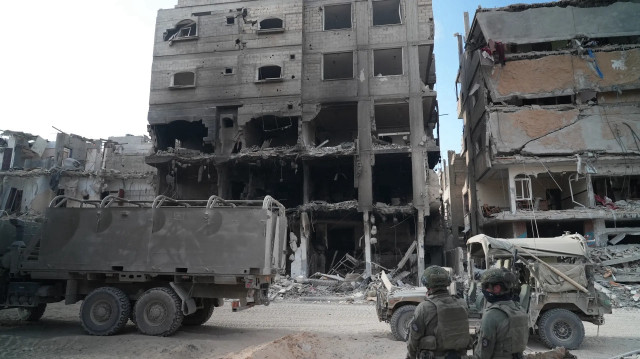

File photo
IUMS calls for the formation of an international investigative committee into the use of internationally prohibited weapons by Israel during the war in Gaza
The International Union of Muslim Scholars (IUMS) called Sunday for supporting the Lebanese people in reconstruction efforts while stressing the importance of continued support for Gaza.
This came in a statement issued after IUMS' Board of Trustees meeting on Saturday and Sunday in the Qatari capital Doha.
The statement urged "the scholars of the Muslim Ummah, its elites and components to fulfill their roles and strengthen their presence in advancing the Islamic civilizational project."
It emphasized "preserving the shared values among peoples of diverse cultures which protect humanity, dignity and innate human nature."
IUMS expressed "its dissatisfaction and sorrow over the state of numerous Islamic and other societies, marked by conflicts, wars, hatred and the violation of innate values and principles."
It also strongly condemned "the crime of the century represented by the brutal (Israeli) genocide targeting people…in Gaza and Palestine."
IUMS called for "the formation of an international investigation committee into the use of internationally prohibited weapons by the Israeli occupation during the war (genocide) in Gaza, particularly in the last fifty days when criminal weapons were employed to incinerate and vaporize bodies to conceal the crime."
The Board of Trustees decided to "continue supporting and endorsing the Palestinian cause, especially in Gaza, giving greater attention to meeting basic needs such as food, medicine, clothing and shelter."
Regarding Lebanon, IUMS affirmed "its solidarity with the Lebanese people in their defense of sovereignty and land against the Zionist (Israeli) aggression."
It also called for "supporting the Lebanese people, extending a helping hand, and advocating for reconstruction and compensation for those affected."
On developments in Syria, it noted that it "is closely following the rapidly unfolding events in Syria and their potential outcomes, praying to Allah to protect the Syrian people from harm and malice, to grant them their aspirations, security, stability and territorial unity and to support their legitimate demands."
The Arab region is witnessing significant developments that have drawn global attention, starting with the ongoing Israeli genocide in the Gaza Strip, the security situation in Lebanon amid Israeli violations of a cease-fire agreement more than a year after confrontations, and culminating in a military operation launched by armed opposition factions in Syria against the Bashar al-Assad regime's forces. These factions have succeeded in fully controlling Idlib province and most parts of Aleppo province.
*Writing by Rania Abu Shamala
#Doha
#Gaza
#International Union of Muslim Scholars
#Israel
#Lebanon
